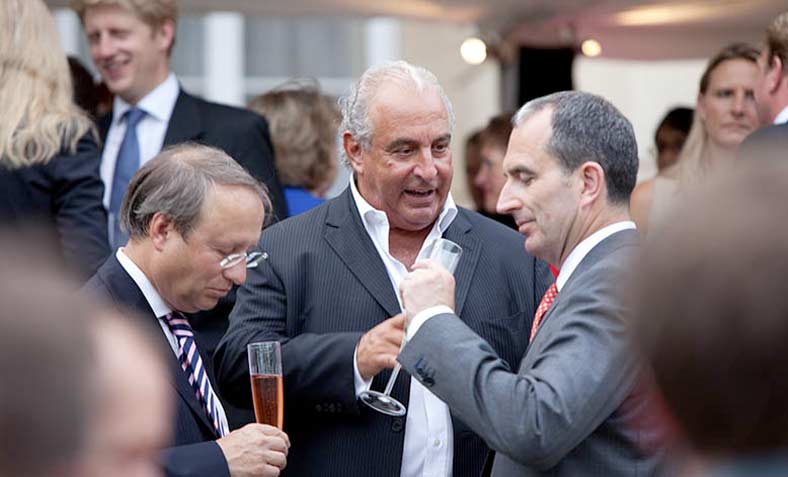 Philip Green. Photo: Wikimedia
Philip Green. Photo: Wikimedia
Vladimir Unkovski-Korica looks at the context behind BHS’ collapse
An avid reader of the business press these days would be excused for thinking we are returning to Dickensian times. While living standards in the developed world have been flat or falling for two thirds of households since 2005, parliamentary expenses scandals, bankers’ bonuses, tax evasion and fat cat asset stripping continue unpunished and – unabated.
The rich get richer and the poor poorer, and it’s all legal. The British Home Stores (BHS) scandal is just the most recent example of this snowballing trend. In recent days, Parliament’s Business, Innovation and Skills select committee exposed a case of exceptional avarice on the part of former BHS owner Sir Philip Green in his dealings with the company.
Having acquired the company for just £200 million in 2000, Green, who was knighted by Tony Blair’s government for ‘services to the retail industry’ and made head of the government’s ‘Efficiency Review’ by David Cameron, ran the company at barely a profit for 15 years. All the while, he was loading the company with bad debts payable to his other companies, and depositing money out of dividends to his wife in Monaco, to avoid tax.
He then sold the debt-ridden BHS off in March 2015 for £1. Just over a year later, the company went bankrupt with debts of £1.3 billion. This figure includes a £571 million pension deficit. More than 11,000 staff face redundancy and 22,000 former staff loss of pensions. All the while, Green sits on billions of pounds as a private fortune, owns a jet and a fleet of yachts, and even made the Sunday Times Rich List.
Despite all this, though, the parliamentary select committee could find no evidence of illegality on Green’s part. While MPs could claim much of what he had done was immoral, they could not make him pay for his destruction of the firm. The reason for that is simple: if they did, they would be outlawing private property and profit-seeking, precisely those things which makes capitalism tick. This is why Theresa May’s promises to reform capitalism ring so hollow.
The business and political elites work hand in hand as the brief story of Sir Philip Green shows. He has enough money to pay his workers’ pensions, but he refuses to. The government had enough money to bail out the banks that failed to the tune of trillions of pounds – using taxpayer’s money. Private debts turned into public debts and years of austerity have been the result, pushing millions into poverty.
Austerity is an ideological choice and a conscious strategy by the ruling class to make the working class pay for their crisis. Arguably, this was the shift made in the 1970s and 1980s in response to the falling competitiveness of the British economy in global terms. As more and more was produced worldwide, workers were forced to race to the bottom in order to maintain capitalist profits. Margaret Thatcher was central to this, as she decided to close down various industries and empower the financial sector, making Britain dependent on the City of London.
The profligacy and failure of the banks, however, exposed the underlying low productivity of the UK economy. Sir Philip Green is just the vile symptom of a deeply unjust system – his asset stripping and destruction of jobs is the tip of the iceberg. He may now be turned into a handy scapegoat, as may Brexit, migrants or Muslims. But the truth is that increasing numbers of people are seeing through the lies, as attested to by the rise of protest movements, worker strikes and the likes of Jeremy Corbyn.
This is also why mainstream newspapers have increasing numbers of front page attacks on Jeremy rather than capitalist waste. They recognise in Jeremy the rise of a socialist alternative, one which could place people above profit. It is also not hard to imagine what lengths the establishment, people like Sir Philip Green, would go to in order to stop Jeremy if he were to take power.
This is why we have to create a mass movement to stop austerity and back socialist measures like the nationalisation of banks and big business and a programme of mass job creation. We should make sure Labour keeps Jeremy and takes the fight to the Tories. And we need to make sure the establishment cannot stop change even with Jeremy in office.

